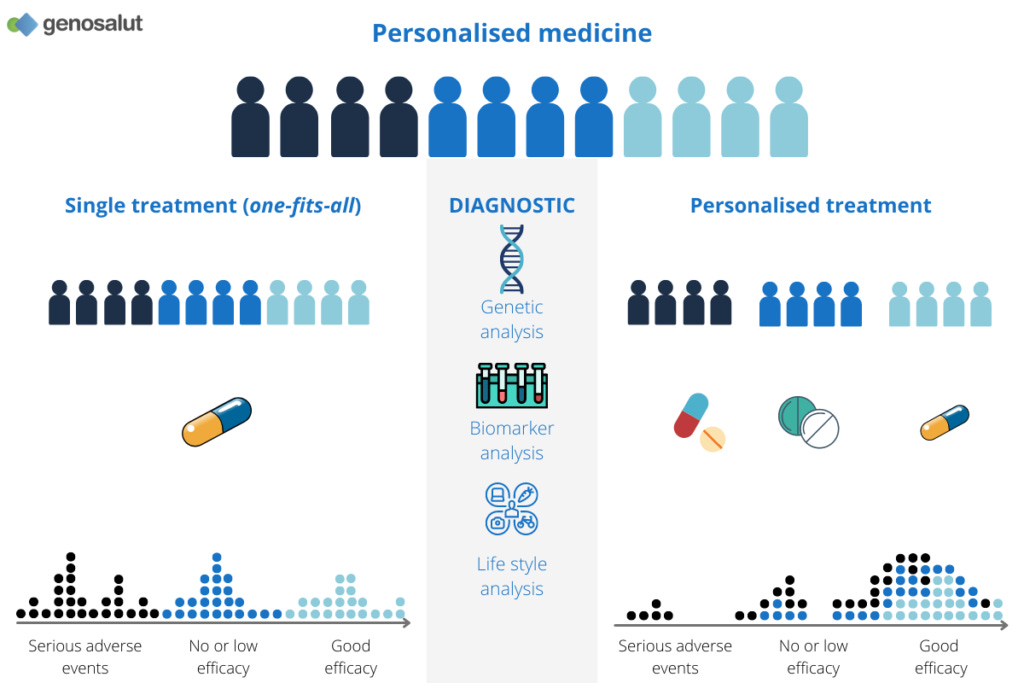Personalized medicine represents a revolutionary shift in healthcare, moving away from a one-size-fits-all approach towards tailored treatments based on individual characteristics. This practice leverages genetic, environmental, and lifestyle factors to create more effective and targeted therapies.
The advent of genomic sequencing has been a huge contributor to the rise of personalized medicine. Genetic analysis companies like 23AndMe may reveal things about your ancestry and health risks associated with your genes. By analyzing a patient’s genetic makeup, healthcare providers can identify specific biomarkers that indicate how an individual may respond to certain medications. This information allows for more precise prescribing, reducing the trial-and-error process often associated with traditional treatments.
In oncology, personalized medicine has proven particularly impactful. Cancer treatments can now be tailored to target specific genetic mutations within a tumor, enhancing effectiveness and minimizing side effects. This approach not only improves patient outcomes but also paves the way for new therapeutic strategies.
But of course, personalized medicine extends beyond genetics too, and has origins far earlier than you may expect. Lifestyle factors, such as diet and exercise, have always been considered when developing treatment plans for a very long time. This holistic view empowers patients to take an active role in their health, promoting preventive care and lifestyle modifications.
Artificial intelligence and big data are also transforming how we understand diseases and develop interventions. While challenges remain, such as accessibility and ethical considerations, the promise of personalized medicine is clear: a future where healthcare is tailored to the unique needs of each individual, leading to better outcomes and improved quality of life.
Written by Azzy Xiang from MEDILOQUY




